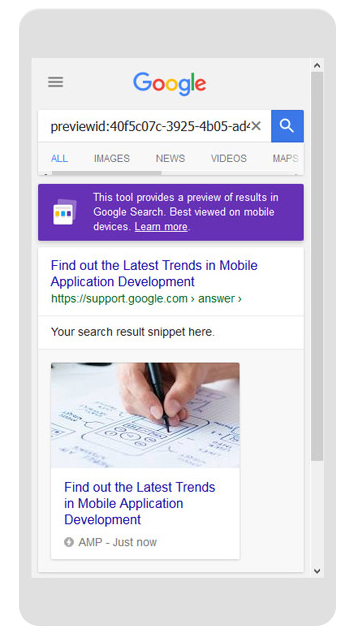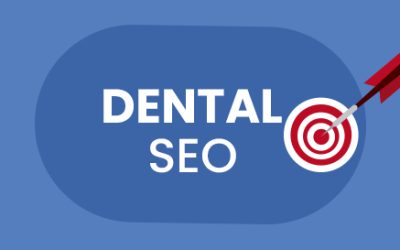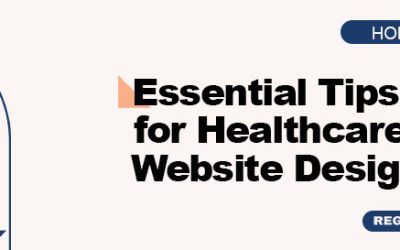This is a highly competitive world, and digital marketing for hospitals and the healthcare industry in general has become vital to stand out in the crowd. To bring your brand to the limelight, you need the right strategy and a good implementation process. A strong online marketing strategy requires a thorough SEO plan. SEO or search engine optimization is changing rapidly and healthcare businesses need to use the right medical SEO tools to ensure maximum visibility for their websites on the Internet. Changing customer expectations and Google algorithm updates keep medical marketers busy, continuously making the necessary adjustments. SEO is the lifeblood of any online business and one of the most important ways to achieve and maintain a competitive advantage within the medical industry is to watch out for even a subtle change in SEO trends in 2018 and make essential changes in your campaigns.
Accelerated mobile pages: AMP or accelerated mobile page is a project from Google and Twitter designed to make really fast loading mobile pages. It is an open source initiative that enables the creation of websites and ads that load fast; are beautiful and perform excellently across devices and distribution platforms. AMP enables mobile browsers to load individual pages four times faster than regular pages, using ten times less data. Faster loading times will help reduce your bounce rate, and this will increase your website ranking on Google.

Good quality, personalized content: There is no doubt that quality content still rules in digital marketing and it will continue to do so. Now the requirement is personalized content that is tailored to customer needs as well as where they are in the buying process. According to Montate, 94% of digital professionals believe that personalization is indispensable for present and future success. The Publish or Perish analysis made by Forbes also found that marketers who deliver personalized web experiences receive double-digit returns in marketing performance and response. PWC’s Digital Services group point out that 94% of senior level executives believe that personalization is important for reaching customers. To leverage personalized content, you need to first find out personal details of your client such as names and emails. Most visitors will share these details in exchange for valuable content such as an eBook. With the basic customer data available you can start lead nurturing campaigns offering your prospective customers access to more valuable content in exchange for more relevant data.

Long-form content and infographic for better search results: Now Google prefers long-form content or content that exceeds 2000 words in a single content (article, blog, etc.) on a particular web page. Along with an infographic, this will help you achieve better online visibility, more social shares, more inbound links, and increased website authority. To develop this type of content, you can consider obtaining medical content writing services.
HTTPS has become mandatory: Now, Google requires HTTPS for secure data in Chrome. If you have not upgraded your website to “https,” Google may lower your search engine rank. Upgrading to “https” is not costly, so you can go ahead and do it immediately.

Voice search will increase: Many users now prefer voice search rather than typing. This type of search has been made easy by Google Home and Amazon Echo, which are voice-activated speakers powered by Google Assistant and Amazon Paraphernalia respectively. You can ask any question or tell them to do anything – from booking a cab ride to watching movies.
Video content sharing: The significance of video marketing is growing every year and videos are increasingly used in strategic SEO campaigns. A video is socially shared to help the marketing plan and invite links. A single minute of video content is the equivalent of 1.8 million words, says digital marketing expert James McQuivey. Cisco System found that video will continue to increase its dominance on internet traffic with volumes increasing fourfold by 2020. Video will represent more than 80% of all internet traffic by 2019.

Building brand awareness: Creating awareness about your brand among customers and strengthening the brand will continue to be one of the most important SEO trends for 2018. When a brand is listed and recognized in the top SERPs, customers are more likely to purchase their products or services. A popular top brand is more likely to collaborate with other organizations in their industry or niche. Social media sites are free and should be utilized to the fullest for brand awareness. Your performance on social media can pick up social signals that are factored into Google’s and Bing’s organic search algorithms.
Focus on social media marketing: It is expected that B2b marketing leaders will spend most of their time on social media avenues. A TEKsystems 2017 study points out that social media budgets will expand and the focus will be on understanding customers’ point of view. Another point to note is the increasing popularity of emotionally engaging content, which is shared most. You need to understand how your customers feel about their experience interacting with you on social media. It is important to identify the networks that are most important for your healthcare business and engage more on those.

Backlink Building: Building good quality backlinks adds value to the consumer experience and it is one of the key ways to convince Google that you have a trustworthy website. Make sure that you link only to reputable sources, not just flood your copy with links that take your visitors to multiple directories. The significance of backlinks has declined over the last few years but in 2018 it is expected to remain as one of Google’s ranking factors.
Increase in Visualization: In 2018 use of pictures is predicted to increase, so including images and videos in your SEO strategy is vital. Researchers have shown that people tend to attach a much deeper meaning to rich visuals and elements they can interact with. This will help to earn more likes and shares than even the best word-only copy.
Ranking as Quick Answers: Google’s Quick Answer feature comprises small snippets of information that Google highlights at the top of their SERPS. A user does not have to open the link to see the content on a webpage. Instead, Google extracts summary answer from the webpages and features it in a block of text. Over time, the answer that is given may change as Google is continuously working on providing a user with the best results possible. Create a list of solutions to answer a question, optimize the page with valuable incoming links and make sure that the page is also optimized for mobile users.
User experience or UX is very important to provide a good impression about your products and services, and this is possible only with an effective healthcare website design. A smooth user experience will have a positive impact on your SEO. Your visitors will stay longer at your website, which in turn will increase average site visit time and reduce bounce rate. We are already approaching the tail end of 2017; it’s time to start planning for and putting in place the necessary strategies to ensure healthcare digital marketing success in 2018 and the years to come.




